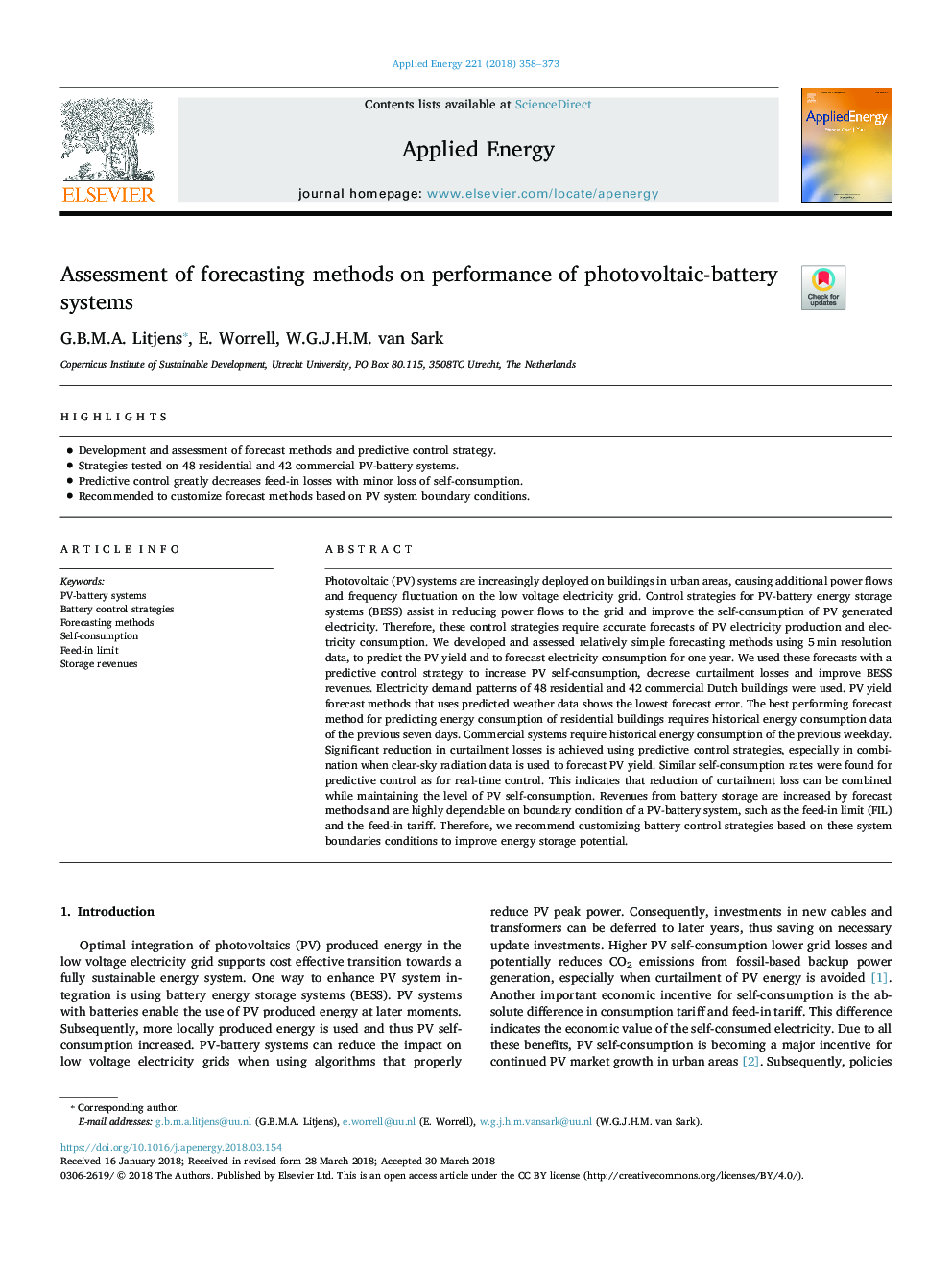| Article ID | Journal | Published Year | Pages | File Type |
|---|---|---|---|---|
| 6680139 | Applied Energy | 2018 | 16 Pages |
Abstract
Photovoltaic (PV) systems are increasingly deployed on buildings in urban areas, causing additional power flows and frequency fluctuation on the low voltage electricity grid. Control strategies for PV-battery energy storage systems (BESS) assist in reducing power flows to the grid and improve the self-consumption of PV generated electricity. Therefore, these control strategies require accurate forecasts of PV electricity production and electricity consumption. We developed and assessed relatively simple forecasting methods using 5â¯min resolution data, to predict the PV yield and to forecast electricity consumption for one year. We used these forecasts with a predictive control strategy to increase PV self-consumption, decrease curtailment losses and improve BESS revenues. Electricity demand patterns of 48 residential and 42 commercial Dutch buildings were used. PV yield forecast methods that uses predicted weather data shows the lowest forecast error. The best performing forecast method for predicting energy consumption of residential buildings requires historical energy consumption data of the previous seven days. Commercial systems require historical energy consumption of the previous weekday. Significant reduction in curtailment losses is achieved using predictive control strategies, especially in combination when clear-sky radiation data is used to forecast PV yield. Similar self-consumption rates were found for predictive control as for real-time control. This indicates that reduction of curtailment loss can be combined while maintaining the level of PV self-consumption. Revenues from battery storage are increased by forecast methods and are highly dependable on boundary condition of a PV-battery system, such as the feed-in limit (FIL) and the feed-in tariff. Therefore, we recommend customizing battery control strategies based on these system boundaries conditions to improve energy storage potential.
Keywords
Related Topics
Physical Sciences and Engineering
Energy
Energy Engineering and Power Technology
Authors
G.B.M.A. Litjens, E. Worrell, W.G.J.H.M. van Sark,
